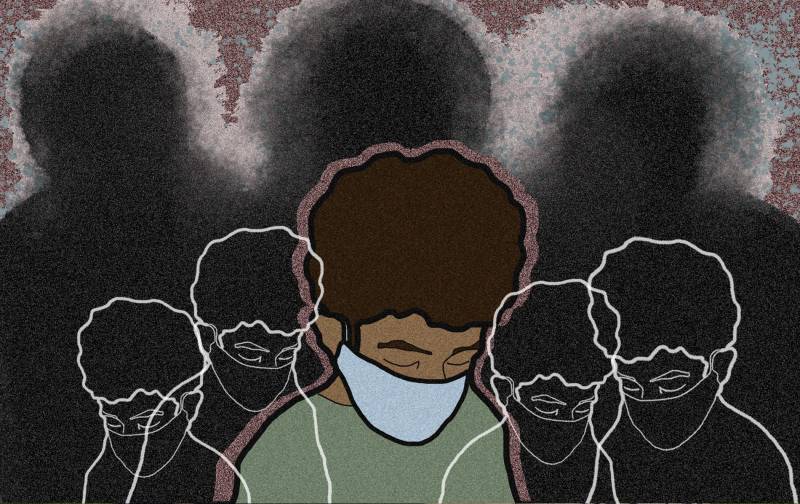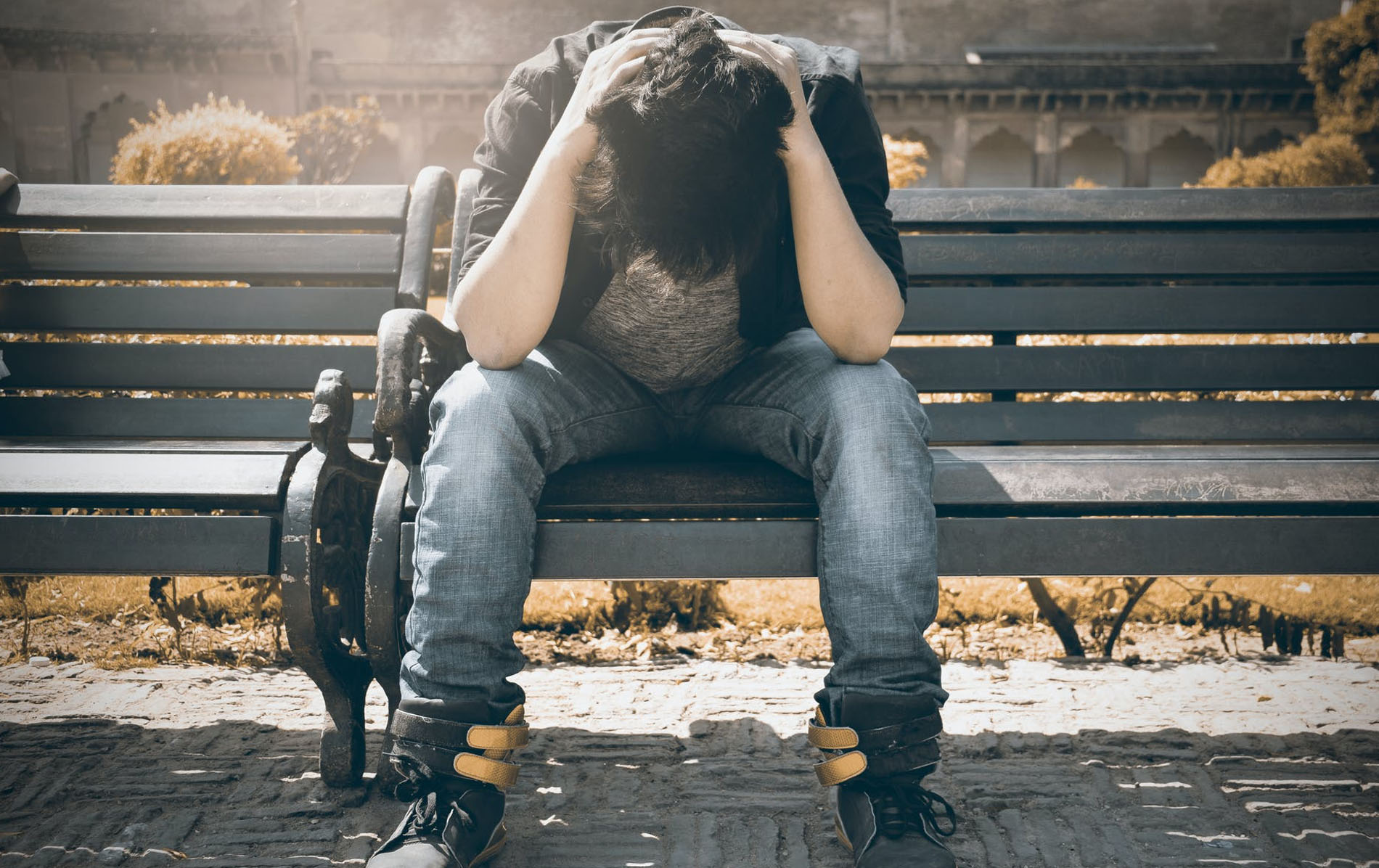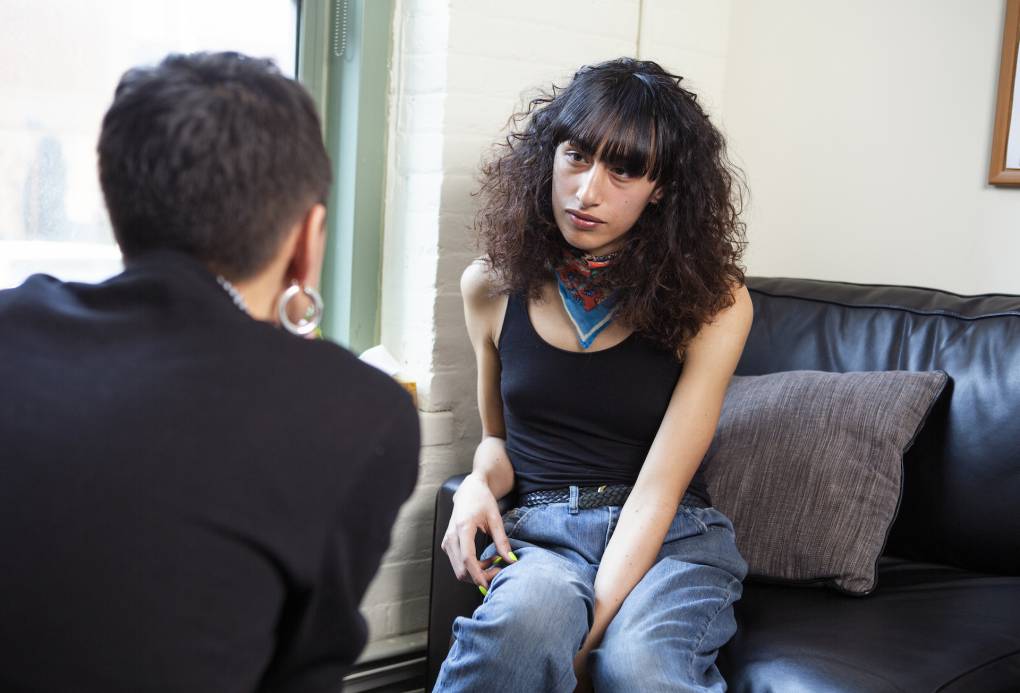Updated 11 a.m. Wednesday
This story was originally published on July 9, 2020, and has now been republished with a new introduction by KQED’s Nisa Khan.
Jump to a specific question:
- What defines a hate crime?
- What to do if you experience one
- How to effectively document a hate crime
- Your reporting options if you don’t want to call police
- Coping emotionally with the impact of hate crimes
A month ago, Hamas launched an attack into Israel from Gaza that killed at least 1,400 people, taking approximately 240 hostages according to the Israeli government. In the weeks since, Israel’s unrelenting attacks on Gaza have killed more than 10,000 people, over 4,100 of whom were children, according to the Hamas-run Health Ministry in Gaza. (The United Nations has stated that these numbers provided by the Health Ministry have been credible in the past.)
Thousands more Palestinians have been wounded during Israeli air raids, with around 1.4 million internally displaced. The crisis has prompted huge crowds and protests in the Bay Area in support of a ceasefire in Gaza. Read more about this history from NPR in their ‘Middle East Crisis — Explained’ series.
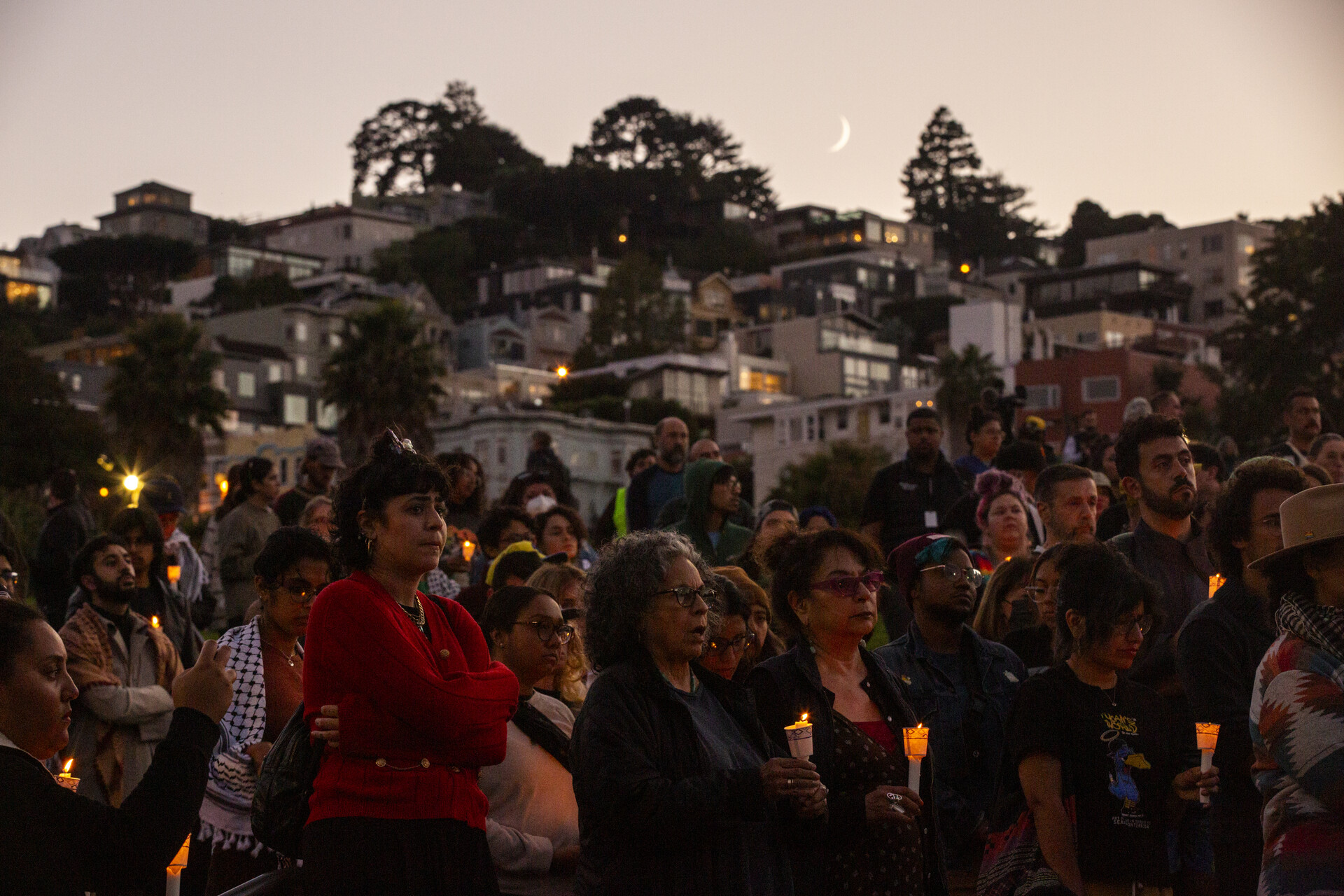
The violence abroad has its impact within the United States. Palestinian, Arab American, Muslim and Jewish communities have told media outlets that they currently fear potential violence and harassment. In an open letter in support of freedom of speech on college campuses, the American Civil Liberties Union (ACLU) wrote that the organization was “seeing a rise in antisemitic and anti-Arab and Muslim discrimination, with documented threats against Jewish, Palestinian, Muslim, and Middle Eastern and South Asian origin students and faculty alike.”
On Monday, a 69-year-old Jewish man died after falling amidst dueling demonstrations in Southern California between pro-Israel and pro-Palestinian protesters. Authorities told the New York Times they were investigating the incident as a homicide and possible hate crime.
On Nov. 4, an Arab Muslim student — Abdulwahab Omira — at Stanford University was hospitalized in a hit-and-run incident that is being investigated as a hate crime. The university said the driver was reported to have made eye contact with Omira, accelerated and hit him and yelled “f*** you and your people” in the lowered window of the SUV. Omira told NBC News that the “ordeal has solidified my resolve to advocate for love, understanding, and inclusivity.”
On Oct. 14, a 6-year-old Palestinian American boy named Wadea Al-Fayoume was fatally stabbed in his home in a suburb of Chicago by his landlord. His mother was also injured in the assault. Officers determined the family was targeted by their landlord “due to them being Muslim and the ongoing Middle Eastern conflict involving Hamas and the Israelis” and charged the landlord with a hate crime.
“There’s a lot of fear. There’s a lot of anxiety and uncertainty in everything that’s happening,” Abed Ayoub, national executive director for the American-Arab Anti-Discrimination Committee, told the Associated Press in mid-October. He adds that his organization has received more than 100 reports of verbal harassment, threats, intimidation and physical attacks. “It’s very reminiscent of the early days of post-9/11, where people didn’t want to go outside, they didn’t want to send their kids to school.”
Hate crimes in California are defined by an act that is illegal under the law and is motivated by bias toward a specific group. This can be through physical violence or threats and also property destruction — as when San Francisco Mayor London Breed confirmed last month that graffiti that threatened violence against Israel was being investigated as a hate crime.
In recognition of this moment, KQED is now republishing our guide from 2020 on hate crimes — then published following a spike in violent attacks targeting Asian American elders in California — which includes what to do if you witness or are the victim of a hate crime.
You can skip to mental health resources and hotlines for those impact by hate by click on this link.
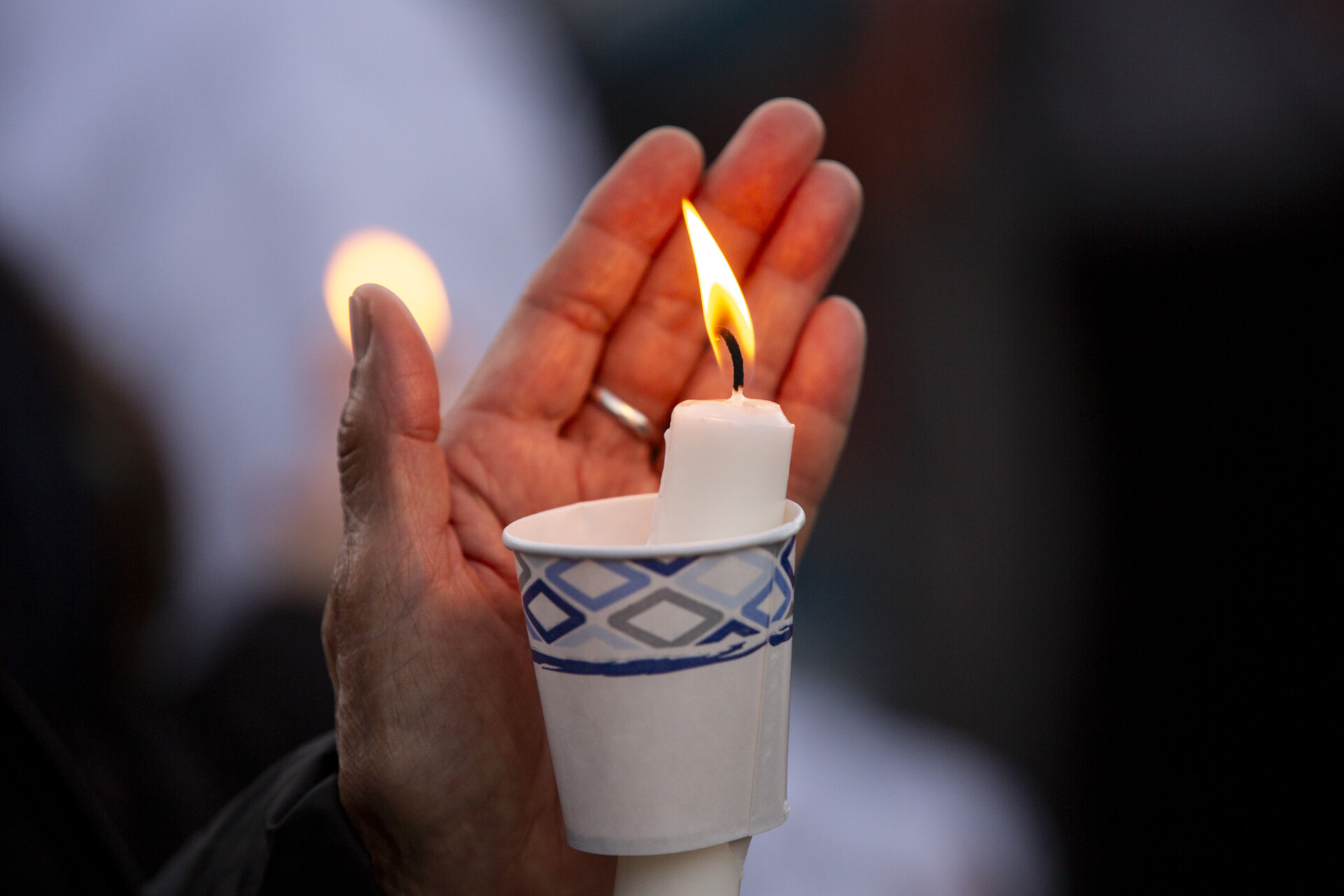
Original story, from Audrey Garces, below:
I researched hate crimes in the Bay Area to bring you this guide. But even as I did so, my reporting took a very personal turn.
On a socially distanced road trip to the Yosemite Foothills with my partner Arash and a couple friends in the summer of 2020, we all stopped briefly at a grocery store, where Arash asked an employee if he could use the restroom — but was told they were closed to customers. He ran across the street to use another bathroom instead. While I went to wait in the car, Arash then returned to the grocery store to meet back up with our friends. He soon came out shaking.
It turned out that the store’s restrooms hadn’t been closed — and that our white friend and other white customers had been allowed to use them. Not only that, but when the employee who had denied Arash access saw he’d returned to the store, the man begun boasting loudly to a coworker about sleeping with loaded firearms, and how he was ready to discharge them on “crazy people.” As he said this, he gestured towards my partner — the only person of color in the store, aside from myself earlier — who was wearing a mask that said ‘Black Lives Matter.’ He continued making his threats as Arash swiftly left the store.
As a journalist who’d spent that week compiling resources for people facing situations just like this, even I was left asking questions. Was that a hate crime? What do we do? Who can we call? How do we process these feelings — of shock, of anger, of helplessness and suddenly feeling very unsafe?
What is the Definition of a Hate Crime?
Firstly, authorities will treat a hate crime differently than a hate incident. The legal distinction between a hate crime and a hate incident determines if police can conduct an investigation and charge the perpetrator — for a hate incident, they can’t — but it can be tricky to distinguish the two. And it’s common for people to doubt the validity of their own experiences — as my partner and I did.
The bottom line is: Most anti-hate organizations collect reports of hate crimes and incidents. And if you want to file a report to police, but aren’t sure if it rises to the level of a crime, don’t let that hold you back. You have the right to still report a hate incident, and these reports are valuable to law enforcement regardless. Even if it’s not ultimately deemed a hate crime, police will still connect you with relevant resources, according to Sheryl Davis, the executive director of the San Francisco Human Rights Commission (HRC).
So what is a hate crime? We often think of them in terms of physical violence or property destruction, based on what makes news headlines. But the definition is actually more encompassing.
A hate crime is committed when an act that is illegal under the law is motivated by bias toward a specific group, such as on the basis of:
- Race or color
- National origin
- Religion
- Sexual orientation
- Gender or gender identity
- Disability
If the action or speech in question threatens a person or property, that’s a telltale sign it’s a hate crime. In California, hate crimes are prosecuted by city and district attorneys under the state’s penal code.
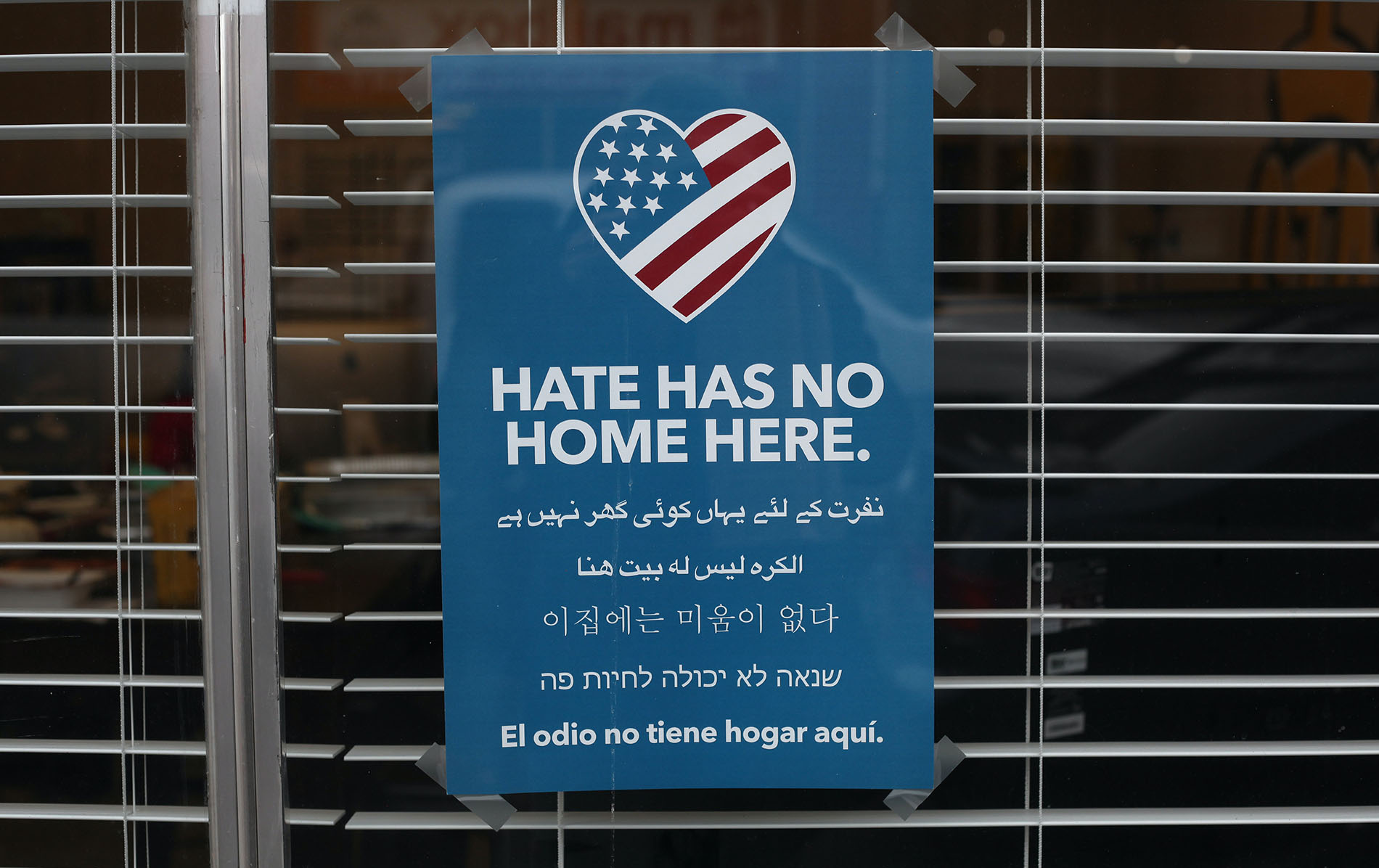
Hate incidents, on the other hand, are when an action is motivated by bias but doesn’t rise to the level of a crime. These can include:
- Name-calling
- Insults
- Distributing hate material in public places, or on someone’s own property.
These instances are often legally protected by the Constitutional right to freedom of speech. However, hate incidents can still be the subject of civil lawsuits, under the state’s civil code.
The San Francisco HRC, and many other organizations doing anti-hate work, say it’s important to capture hate crimes and incidents. That’s because they believe FBI and state law enforcement reports are under-representing the bigger picture of racism, violence and threats happening — both because of underreporting to law enforcement, and the absence of incidents that don’t rise to the level of a crime.
What Should I Do During a Hate Crime?
My partner Arash is from a Southern California town where the population is 70 percent white. He’s told me stories from his childhood: from the time his family was shot at and berated to “go back to their own country,” to being profiled and harassed by police before hitting puberty — all under the backdrop of Confederate flags proudly waving throughout his hometown. He’s no stranger to racism.
But still — in that moment in the grocery store — he said he felt completely helpless. “I’ve been forced to prepare for experiences like this my entire life. But in the moment, none of that mattered because of the overwhelm of shock and emotion,” Arash told me. “I didn’t feel safe to speak up because I thought I’d be seen not as the victim, but as the aggressor — in an environment I was already unwelcome in.”
Every hate crime or incident is different, and it can be challenging to know how to respond in the moment. The most important two things to remember are: trust your instincts, and prioritize safety above all else.
Here are some best practices for witnesses and victims of hate crimes in the moment, based on guidance from the Stop AAPI Hate team, the Anti-Defamation League and Attorney General Xavier Becerra’s office:
If you’re the one experiencing hate:
- If it’s safe to do so, leave the area or move to a location with other people who might be able to support you
- Check in with yourself and try to remain calm. Focus on your breathing, limit eye-contact and be conscious of your body language
- It’s best to not speak or engage with the perpetrator. But if it’s safe to do so, use a calm and firm tone to verbally establish physical boundaries and condemn the attacker’s speech or actions
- If there are witnesses present, ask them for support or intervention
- Seek medical attention, if necessary
- Following the incident, get emotional support from your loved ones and/or a mental health specialist
- Consider reporting the incident (see more on that below).
If you’re witnessing hate:
- Introduce yourself to the person being targeted and ask how you can support them
- If the victim consents and it’s safe to do so, continue to monitor the situation and document it
- Ignore the perpetrator and use verbal and nonverbal communication to deescalate the situation, if possible
- Invite the victim to leave with you, if possible
- Offer them support, ask how they’re feeling and what they want to do next.
Reminder: click here to email this guide to someone
How Should I Document a Hate Crime?
Because of the volume of hate crimes we see in videos across social media, captured by people at the scene, getting out your phone might seem like a crucial step. But while documenting and reporting hate incidents are important, “personal safety should always be paramount,” said Seth Brysk, the regional director of the Anti-Defamation League, in an email.
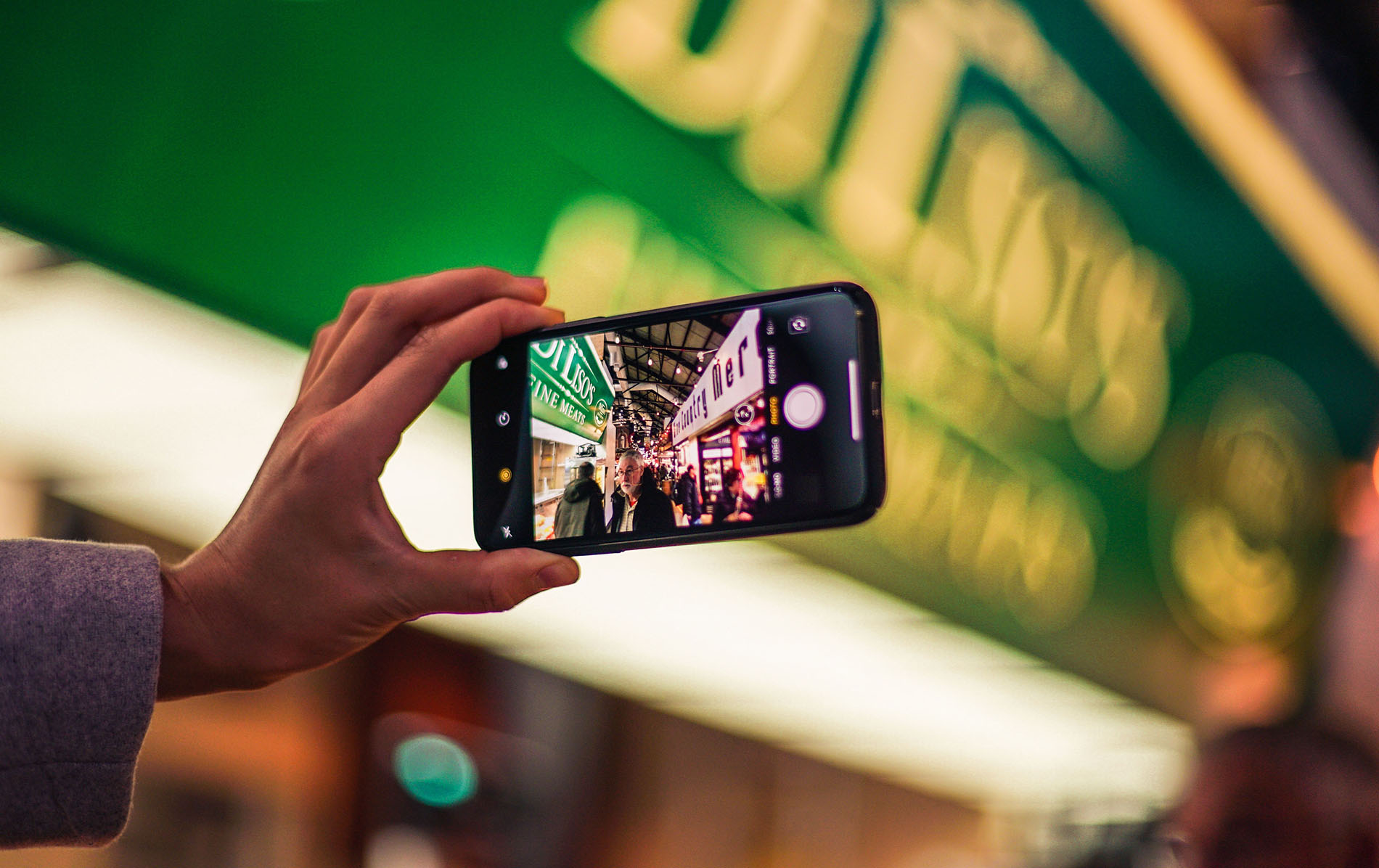
Some ideas for documenting hate safely are:
- Write down notes about what happened and the exact words that were said
- Write a description of the perpetrator(s) and vehicle, if relevant, and collect information from any witnesses
- Save all evidence, and take photos and video, only if you feel safe doing so
- Collect the names and contact information of any other victims and witnesses
- If you want to, and feel safe doing so, contact the local police or sheriff and/or report to community organizations.
How to Report Hate if You Don’t Want to Involve Police
If you don’t wish to involve the police by report a hate crime or incident to them, there are community organizations and some city localities collecting reports in order to educate others, inform policy and show service providers where support is needed.
